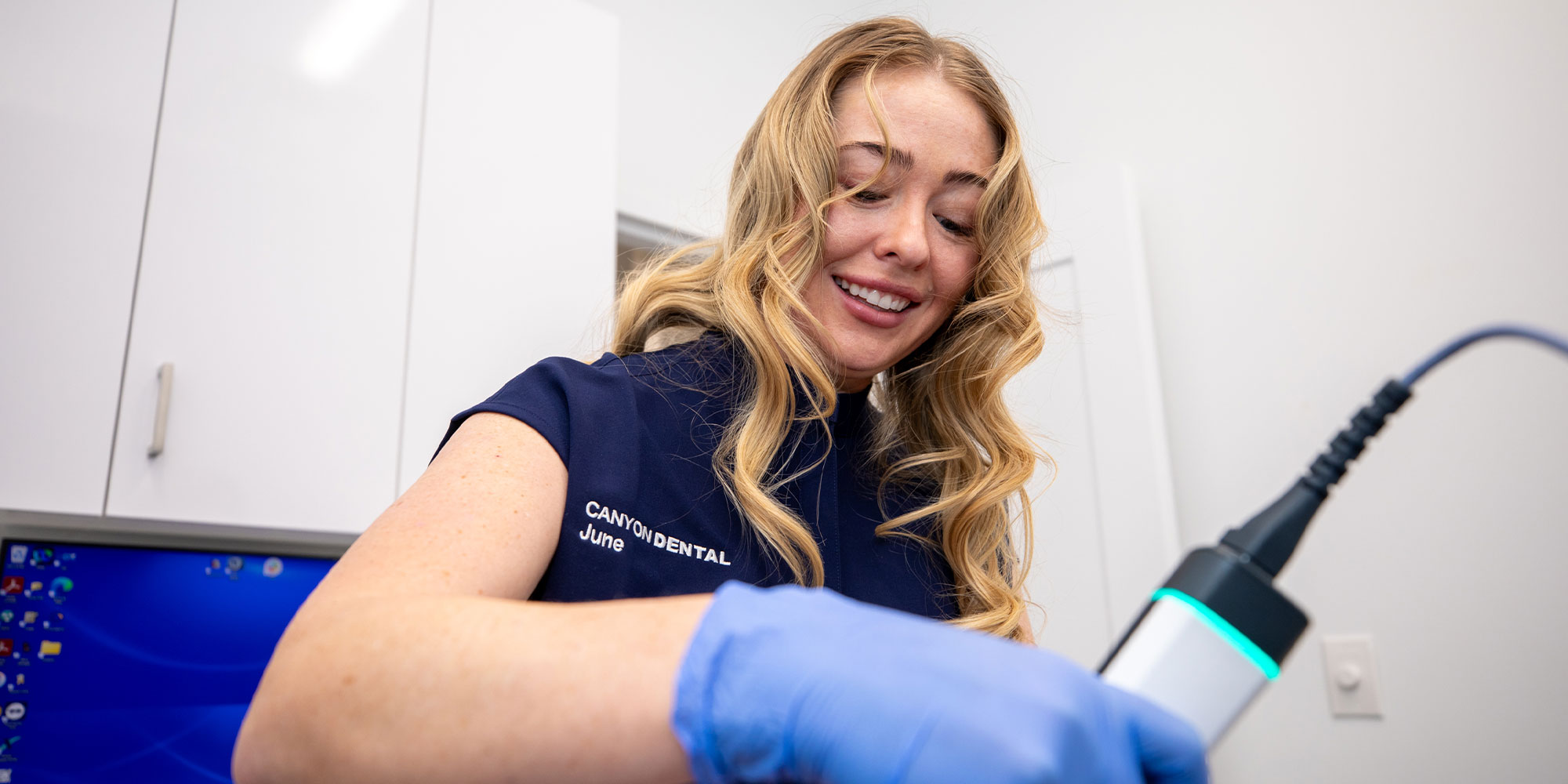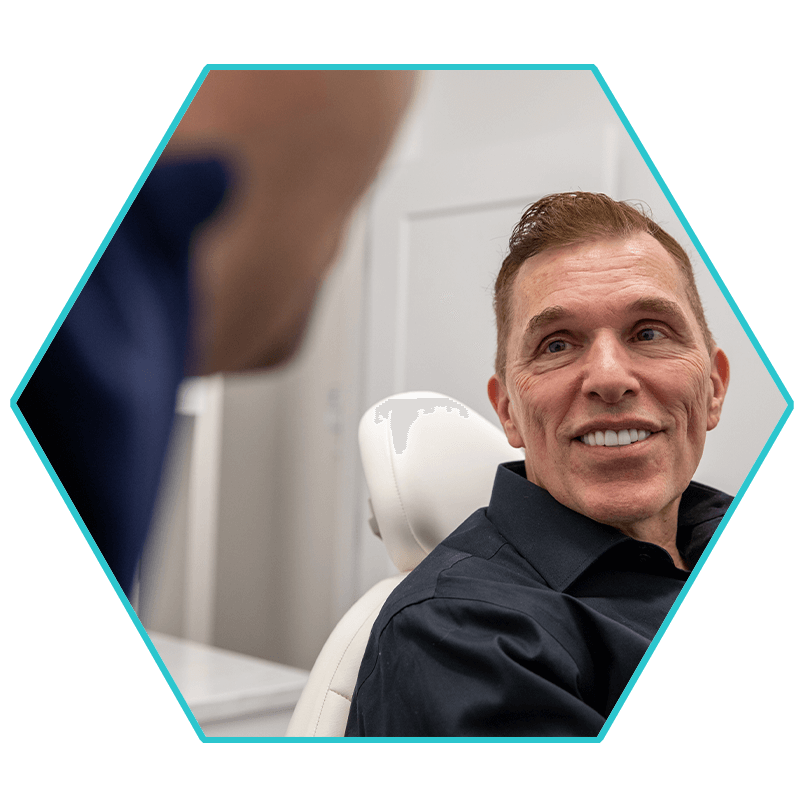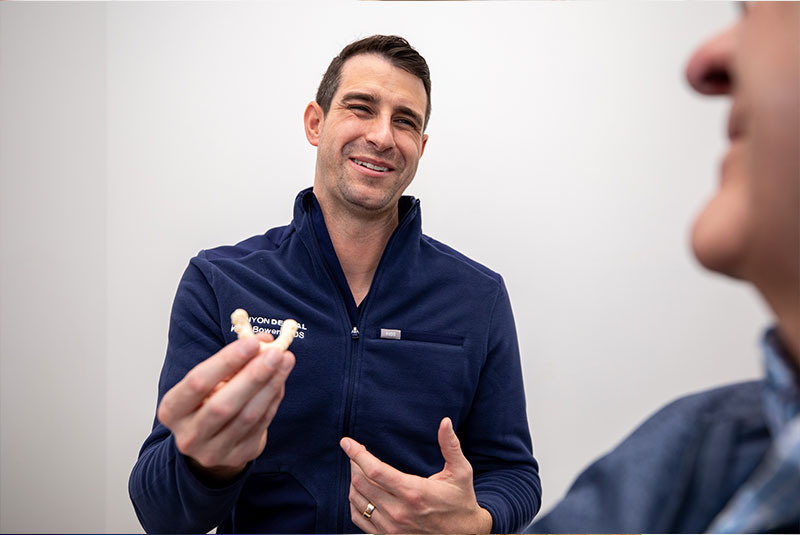
We understand how painful and embarrassing it can be to live with missing, decaying, or severely damaged teeth. These issues can affect your oral health, confidence, and quality of life. That’s why we offer a range of oral surgery procedures designed to eliminate these dental concerns and provide a strong foundation for your healthiest, most radiant smile.
Whether you need tooth extractions, bone grafting, or dental implants, our team at Canyon Dental is here to help you restore your smile’s function and beauty with compassionate care and advanced techniques!


We understand how painful and embarrassing it can be to live with missing, decaying, or severely damaged teeth. These issues can affect your oral health, confidence, and quality of life. That’s why we offer a range of oral surgery procedures designed to eliminate these dental concerns and provide a strong foundation for your healthiest, most radiant smile.
Whether you need tooth extractions, bone grafting, or dental implants, our team at Canyon Dental is here to help you restore your smile’s function and beauty with compassionate care and advanced techniques!
Tooth extractions involve the total removal of a tooth from the oral cavity, which is frequently necessary for individuals experiencing overcrowding or dental decay. There are two primary categories: simple extractions, which pertain to fully visible teeth, and surgical extractions, which are required for teeth that are either fractured or have not erupted. Undergoing a tooth extraction can significantly reduce bacterial presence and enhance overall oral health.
A sinus lift adds bone to the upper jaw around your molars and premolars near the sinuses. This procedure is often necessary for patients who have insufficient bone height in the upper jaw or whose sinuses are too close to the jaw for dental implants to be placed securely.
The sinus membrane is carefully lifted during the procedure, and bone graft material is added to create a stable foundation for implants. A sinus lift can improve oral function and make dental implants a viable option for restoring missing teeth.
Bone grafting enhances the density and volume of the jaw in regions affected by bone loss. Dental bone grafts are essential when there is a reduction in bone mass affecting the jaw. They can be carried out before placing dental implants, following tooth extractions, in cases of gum disease, and for various other reasons. The dental bone grafting procedure helps maintain space within the jaw, allowing the body to activate its natural healing processes.
Ridge augmentation rebuilds and restores the natural contour of the jawbone after tooth loss or trauma. This treatment helps to increase the bone volume and shape, creating a stable foundation for dental implants or other restorations.
Ridge augmentation improves oral function and enhances the appearance of the jawline and smile by using bone grafting techniques. It is an effective solution for patients with insufficient bone density, ensuring long-term success for implant placement and overall oral health.
Dental implant surgery replaces missing or damaged teeth with artificial ones that resemble and function like natural teeth. The process entails placing metal posts into the jawbone, which supports the crowns that will be attached later.
People who have lost one or more permanent teeth due to decay, disease, or injury may be good candidates for this treatment. We are pleased to offer a wide range of dental implants, such as single and full mouth implants.
Wisdom teeth extractions are common surgical procedures to remove one or more of the third molars, typically located at the back of the mouth. These teeth often cause problems such as crowding, pain, infections, or damage to adjacent teeth if they become impacted or grow incorrectly.
The procedure is performed under local anesthesia, sedation, or general anesthesia, depending on the complexity of the case and the patient’s preference. Removing problematic wisdom teeth can prevent future complications and support long-term oral health and comfort.
© All rights reserved